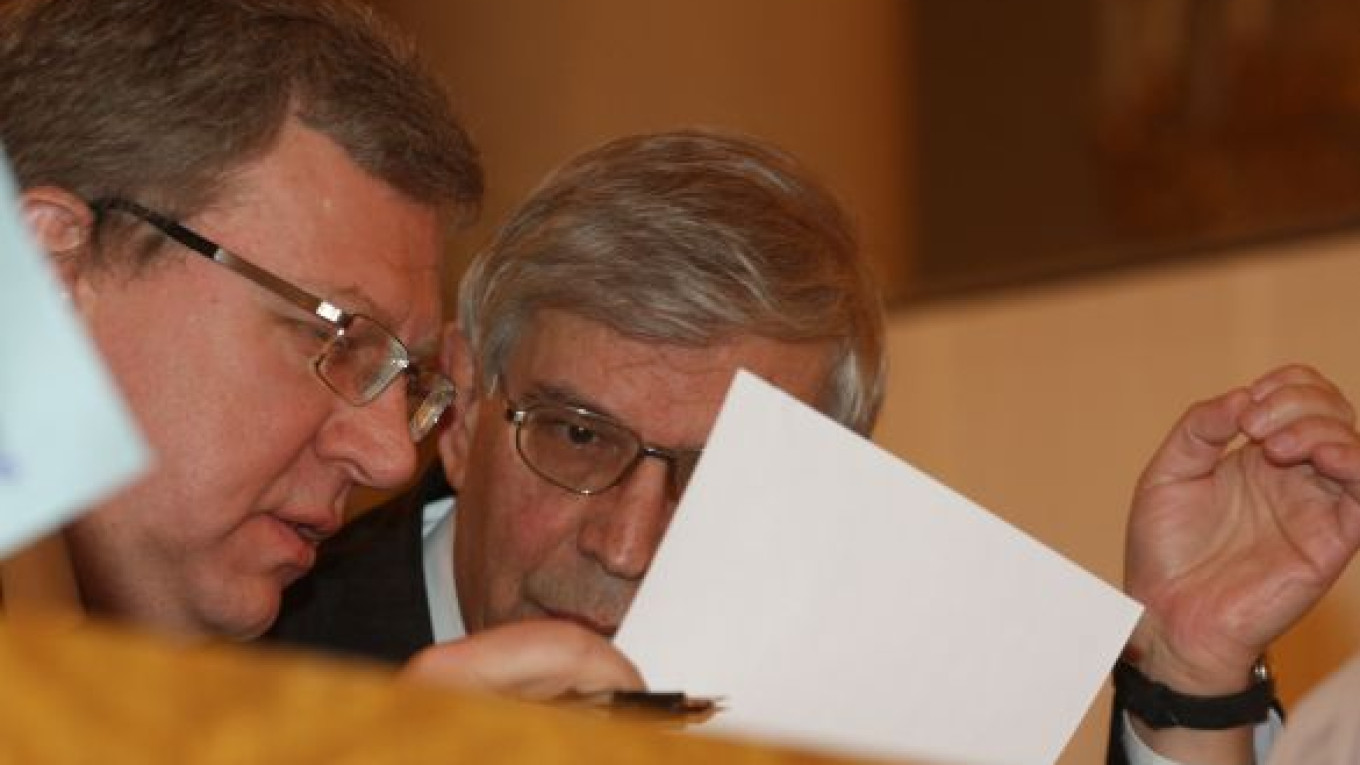Central Bank Chairman Sergei Ignatyev gave the economy a mostly clean bill of health on Friday and said a rate cut this month was not a done deal, following a yearlong easing campaign to help Russia out of recession.
Banks have started to increase lending, bad loans are falling, inflation should hit targets and the ruble is behaving, Ignatyev said. He later added that the Central Bank had not yet decided whether to cut rates this month, despite expecting that inflation may come in lower than it did in April 2009.
But Ignatyev warned that a surge in imports could affect Russia's balance of payments and exchange rate, and he said it was too soon to call nascent credit growth a trend.
Russia is recovering from its deepest slump in 15 years, bolstered by improved global demand and higher prices for oil, which have in turn helped propel the ruble to 15-month highs.
Contrary to some analysts' expectations, the Central Bank has not stepped up its regular currency market interventions, allowing the ruble to push higher and increasing exchange rate flexibility in preparation for an eventual move to a free float.
"The exchange rate is behaving itself quite acceptably," Ignatyev told a banking conference. "By my estimates, the real exchange rate remains a little lower than the trend formed in the pre-crisis period."
The economy is not yet ready for a free float but can come very close to it in the next year to year and a half, he said, adding that the exchange rate would gradually become "more and more flexible."
A stronger ruble makes it more difficult for the industrial sector to compete against foreign goods, and it has also encouraged strong growth in imports, which Ignatyev said rose 28 percent year on year in March.
"Fast-growing imports can have a serious impact on the balance of payments and on the dynamics of the ruble," he said.
On the flip side, the strong ruble has helped keep inflation in check, in turn leaving room for the Central Bank to support growth through a series of interest rate cuts.
Although M2 money supply surged 32 percent in the year to April 1, Ignatyev said its dynamic was not currently of serious concern and was consistent with the target of reducing inflation to 6.5 percent to 7.5 percent this year, from 8.8 percent in 2009.
In theory, that gives the Central Bank room to further cut the refinancing rate from the current historic low of 8.25 percent while keeping real rates positive. Analysts had been expecting a 25-basis-point rate cut this month followed by another move, the last in the cycle, by midyear.
But Ignatyev signaled that this was by no means a done deal, saying he "did not yet know" whether rates will be cut this month.
"In April [inflation] may be lower than in April of last year … but that does not mean it will automatically allow us to cut rates," he told a news conference, adding that the decision would in part depend on March industrial production.
He reiterated that in the second half of the year, when inflationary pressures are rising, policy may be tightened.
Ignatyev's comments — both on rates and on the move toward greater exchange rate flexibility — may further support the ruble, which ended trading for the day as the remarks were published.
Russia has already cut rates 12 times in the past year to stimulate lending, which finally picked up in March.
"For now, it is hard to say whether this is an accident or a break in the trend," Ignatyev said, reiterating the Central Bank's forecast for 15 percent credit growth this year.
Ignatyev partially blamed the slow pickup in lending on the bad quality of borrowers and the high cost of banks' liabilities — factors that analysts at Trust Bank said could not be fixed by rate cuts.
Russia's banks hope to return to pre-crisis profitability this year after some banks, including second-biggest lender VTB, slipped into the red in 2009.
"The problem of bad debts is abating slowly, the economy is gradually starting to grow," Ignatyev said, adding that no new official measures are needed to tackle nonperforming loans. "I currently don't see serious systemic risks."
A Message from The Moscow Times:
Dear readers,
We are facing unprecedented challenges. Russia's Prosecutor General's Office has designated The Moscow Times as an "undesirable" organization, criminalizing our work and putting our staff at risk of prosecution. This follows our earlier unjust labeling as a "foreign agent."
These actions are direct attempts to silence independent journalism in Russia. The authorities claim our work "discredits the decisions of the Russian leadership." We see things differently: we strive to provide accurate, unbiased reporting on Russia.
We, the journalists of The Moscow Times, refuse to be silenced. But to continue our work, we need your help.
Your support, no matter how small, makes a world of difference. If you can, please support us monthly starting from just $2. It's quick to set up, and every contribution makes a significant impact.
By supporting The Moscow Times, you're defending open, independent journalism in the face of repression. Thank you for standing with us.
Remind me later.


